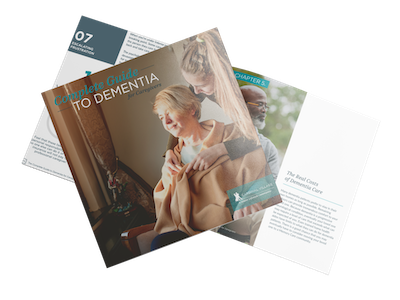Does your spouse, partner, child, sister, brother, parent or friend require constant care? If so, you’re not alone. More than 65 million people care for a family member or friend. That’s almost a third of the American population.
As a caregiver, you may feel exhausted or frustrated. Over time, these feelings can get worse, and may lead to bigger problems for you and the one you care for.
Caring for your loved one takes constant effort, and it’s easy to forget to take care of yourself. If the long-term stress of caregiving is taking a toll on your mental health and wellness, you may be experiencing signs of caregiver burnout.
What is Caregiver Burnout?
Caregiver burnout is a state of stress related exhaustion associated with the difficulties of caregiving. The exhaustion of caregiver burnout may be physical, mental, or emotional, and may lead to feelings of guilt. This condition is often confused with clinical depression, as caregiver burnout and depression share many of the same symptoms. Though these conditions are similar, caregiver burnout is unique to caregivers.
According to the AARP, 38% of caregivers describe their caregiving situations as “highly stressful,” and 22% of caregivers say their health has worsened due to caregiving. Family caregivers are more likely to have a chronic illness, and 34% rate their health as “fair” or “poor.” 70% of family caregivers show signs of depression, as the constant focus on caring for another can lead a caregiver to neglect their own health.
Here are seven signs of caregiver burnout to look out for:
7 Signs of Caregiver Burnout
-
Exhaustion
Caregivers often experience a combination of physical, emotional, and mental exhaustion. When you spend a lot of time and energy caring for a loved one, it’s easy to forget to care for yourself. If you constantly feel sluggish, and basic tasks feel unreasonably difficult, you may be experiencing caregiver burnout.
2. Sleep problems
If you have difficulty falling asleep, staying asleep, or you sleep too much, caregiver burnout may be the cause. Family caregivers can become anxious about their loved one, and may spend the night worrying. Caregivers may have a hard time getting out of bed, or spend too much time sleeping. 76% of caregivers report low-quality sleep, which contributes to depression, fatigue, and anxiety.
3. Weight gain
During periods of high stress, the stress hormone cortisol rises, and can cause unhealthy cravings. Daily stress is a fact of life for millions of caregivers, and they are an at-risk group for weight gain and obesity. When caregivers are on a time-crunch, they may opt for fast food or a pizza delivery, as opposed to a healthy meal. If caregiving has impacted your nutrition, you may be living with caregiver burnout.
4. Feeling sad or hopeless
Millions of people provide care inside of their own home. This can make the task of caregiving feel inescapable, especially for long term care. Caregiving can feel futile, thankless, or bleak, and these feelings can really impact your perspective. Feeling constantly sad or hopeless is a strong sign of caregiver burnout.

Download The Complete Guide to Dementia for Caregivers
Taking care of a loved one with dementia can be more than challenging. Read our eBook, “The Complete Guide to Dementia for Caregivers” which offers everything you need to know about caring for your loved one.
Dowlnoad the Guide
5. More frequent illnesses
Stress has an adverse effect on your immune system, and caregivers may get sick more frequently than other professionals. Getting sick can cause even more stress for the caregiver, and the one being cared for. This can develop a vicious cycle for caregivers, as more stress means more sickness, and more sickness means more stress.
6. Withdrawing from your friends and passions
Isolating is a common coping mechanism for overworked caregivers. Exhausted caregivers may not feel up to socializing, or working on their hobbies. Caregiving may take over the life of the caregiver, and there may not be room in their life for meaningful pastimes and relationships. If caring for your loved one feels like the only thing that you do, you may be experiencing caregiver burnout.
7. Frustration with yourself or your loved one
Intense emotion is a common response to intense stress, and occasional frustration is inevitable in caregiving. You may feel like you’re at your breaking point, as stress, anxiety, and guilt mounts. When you begin to experience escalating frustration or anger, it may be time to remove yourself from the situation, and let someone else take over. If there are no close friends or family members who can step in, it may be time to consult a retirement community.
Finding a Retirement Community You Can Count On
Choosing a retirement community for your loved one can be a tremendous challenge. You may have preconceived notions of what these communities look like, and you may feel complicated emotions. Though relocating a loved one to a community is a difficult decision, it’s also an important one. If you feel burned out as a caregiver, it may be time to relocate your loved one to an Independent Living, Assisted Living, or Memory Care community.
At Senior Lifestyle, we connect with your loved one, and encourage meaningful connections with others. Giving your loved one the retirement he or she deserves, while providing a sense of community will give you both a sense of purpose and relief. If you think that it may be time for an Assisted Living community, find a retirement community close to you.

